In the fast-paced world of digital agencies, managing client relationships and projects can be challenging. The complexities of communication overload, project coordination and scattered data often create chaos. Fortunately, CRM systems offer a lifeline, providing digital agencies with the tools needed to navigate these challenges effectively; especially when they are integrated with other software tools.
Contents:
- 5 challenges faced by digital agencies today
- Choosing a CRM Solution that’s best for your agency
- Software integration is the key
- Trends and Innovations in CRM
- Conclusion
5 challenges faced by digital agencies today
1. Managing Multiple Communication Channels
In business, communication can take place across a range of platforms, from emails and social media to instant messaging and phone calls. Without a CRM solution in place, messages can easily get lost or overlooked in the shuffle. Important client instructions or updates can easily slip through the cracks, causing confusion and inefficiency. Furthermore, managing conversations across these channels can overwhelm teams, resulting in redundant or inconsistent responses that can negatively affect the client experience.
2. Coordinating Tasks Across Teams
Digital agencies often handle multiple projects simultaneously, each requiring input from various teams like design, development, and marketing. Coordinating these tasks across departments can certainly be challenging, especially when there is no centralized system to track progress. It becomes difficult to ensure that everyone is clear on what has been assigned to them and what the deadlines are, and this ultimately impacts the quality and efficiency of the project.
3. Client Information Stored in Various Locations
Client data scattered across different systems creates significant issues for agencies. Employees often waste valuable time searching through emails, spreadsheets, and different software systems to find the relevant information. This scattering makes it difficult to get a complete view of the client. Without a unified repository, understanding a client's needs, history, and preferences becomes labor-intensive, reducing efficiency and increasing the likelihood of errors.
4. Tracking and Converting Leads
Tracking leads from their initial contact to conversion is crucial for agency growth. Agencies often face difficulties in prioritizing leads, maintaining consistent follow-ups, and understanding which leads are most likely to convert. This lack of insight results in lost opportunities, inefficient use of resources, and inconsistent sales processes. The inability to effectively nurture leads means that many potential clients may drop off before converting into business.
5. Lack of Insights to Improve Strategies
Agencies need data-driven insights to refine their strategies and improve their services. However, inadequate reporting often leaves agencies in the dark, unable to accurately measure performance or understand client satisfaction. Without actionable data, it's difficult to pinpoint inefficiencies or areas of improvement, resulting in guesswork rather than informed decision-making.
Choosing a CRM Solution that’s best for your agency
“The system should meet all the agency's needs, and attention should certainly be paid to scalability, integration with other tools, ease of use and customer support. Once selected, make sure the system is configured to effectively manage contacts, projects, tasks and communications, among others,” comments Karolina Ślufarska, Marketing Manager from Firmao, one of Europe’s leading CRM software providers.
There are a number of key things to consider when assessing the different CRM solutions available on the market.
- Centralized platform: All client communication is aggregated in one platform for clarity
- Integration with other tools: Teams collaborate seamlessly through integrated tools such as project management, online feedback, time tracking, etc.
- Centralized Data Management: A single database ensures data is accessible and organized.
- Lead Tracking: Automated lead tracking ensures no leads fall through the cracks
- Robust Reporting and Analytics: Data insights enable better strategic decisions.
These features provide digital agencies with the tools to streamline their workflows, enhancing productivity and client satisfaction.
Software integration is the key
Integrating your CRM with other tools is crucial for enhancing organizational efficiency and improving customer experiences. When CRM systems are connected with other tools it creates a unified source of information.
“Integrating the CRM with other tools used by the agency, such as project management platforms, communication tools and analytics systems - this will enable a smooth flow of information and improve customer relationship management,” mentioned Amelia Ołubek, Marketing Specialist from Firmao.
Whether you connect directly or via a workflow automation software such as Zapier or Make, integrating with multiple platforms will allow for smoother workflows and ensures that all customer interactions are tracked and managed cohesively.
For instance, users of Firmao integrate with BugHerd’s website feedback platform to create automated workflows for tasks, time tracking, project costs and expense tracking. This provides a holistic view of website development projects, ensures that tasks are tracked efficiently from the one system, and makes client invoicing both easy and accurate.

Trends and Innovations in CRM
Digital agency workflows are continuously evolving, focusing heavily on improving efficiency, personalization, and integration of new technologies. Some of the current key trends include:
1. AI and automation:
AI-driven automation allows for more automated workflows, smarter lead scoring, nurturing, and customer engagement which streamlines operations and saves time (SelectHub).
2. Integration with emerging technologies:
Integration allows for better data collection and insights, which can significantly improve customer understanding and service (BuddyCRM).
3. Hyper-Personalization:
Using data to tailor marketing efforts to the individual level, enhancing customer satisfaction and potentially increasing conversion rates (Response Labs).
4. Mobile CRM:
This allows businesses to interact with customers anytime and anywhere, providing real-time updates and personalized interactions directly from mobile devices (Gearheart Web Dev).
5. Voice Technology and Chatbots:
Voice-activated technology is being incorporated into CRM systems and chatbots are increasingly used for handling customer inquiries (SelectHub) (Autymate).
6. Enhanced Data Security and Privacy:
CRM systems are focusing more on robust security features like enhanced encryption and secure access controls to protect sensitive customer data (BuddyCRM).
7. Social CRM and Customer Data Platforms (CDPs):
The integration of social media data into CRM systems helps businesses gain deeper insights into customer preferences and behaviors. Moreover, CRMs are merging with CDPs to offer a more unified view of customer data, which enhances targeted marketing strategies (Gearheart Web Dev) (Asar Digital -).
“We are constantly improving our system, acquiring new integrations and introducing new functionalities to the system. Our latest implementation is the soon-to-be available AI Assistant to streamline and automate operations and new integration with Facebook - it will be possible to receive and reply to messages from Facebook in our system,” says Karolina Ślufarska from Firmao when asked about upcoming trends and innovations.
CRM companies are investing in robust development in their CRM technologies, aiming to create more integrated, secure, and user-centric platforms that not only automate processes but also significantly enhance the customer experience.
Conclusion
Using the right CRM system can be a game-changer for digital agencies grappling with the challenges of modern business environments. By integrating CRM systems with other digital tools, agencies can vastly improve operational efficiency, enhance client satisfaction, and maintain competitiveness in a fast-evolving marketplace.
As CRM technologies continue to advance, adopting AI, mobile accessibility, data security, and hyper-personalization, they offer agencies unprecedented capabilities to manage and nurture client relationships effectively.
Embracing new technologies is not just beneficial; it is essential for any digital agency aiming to thrive in the digital age.




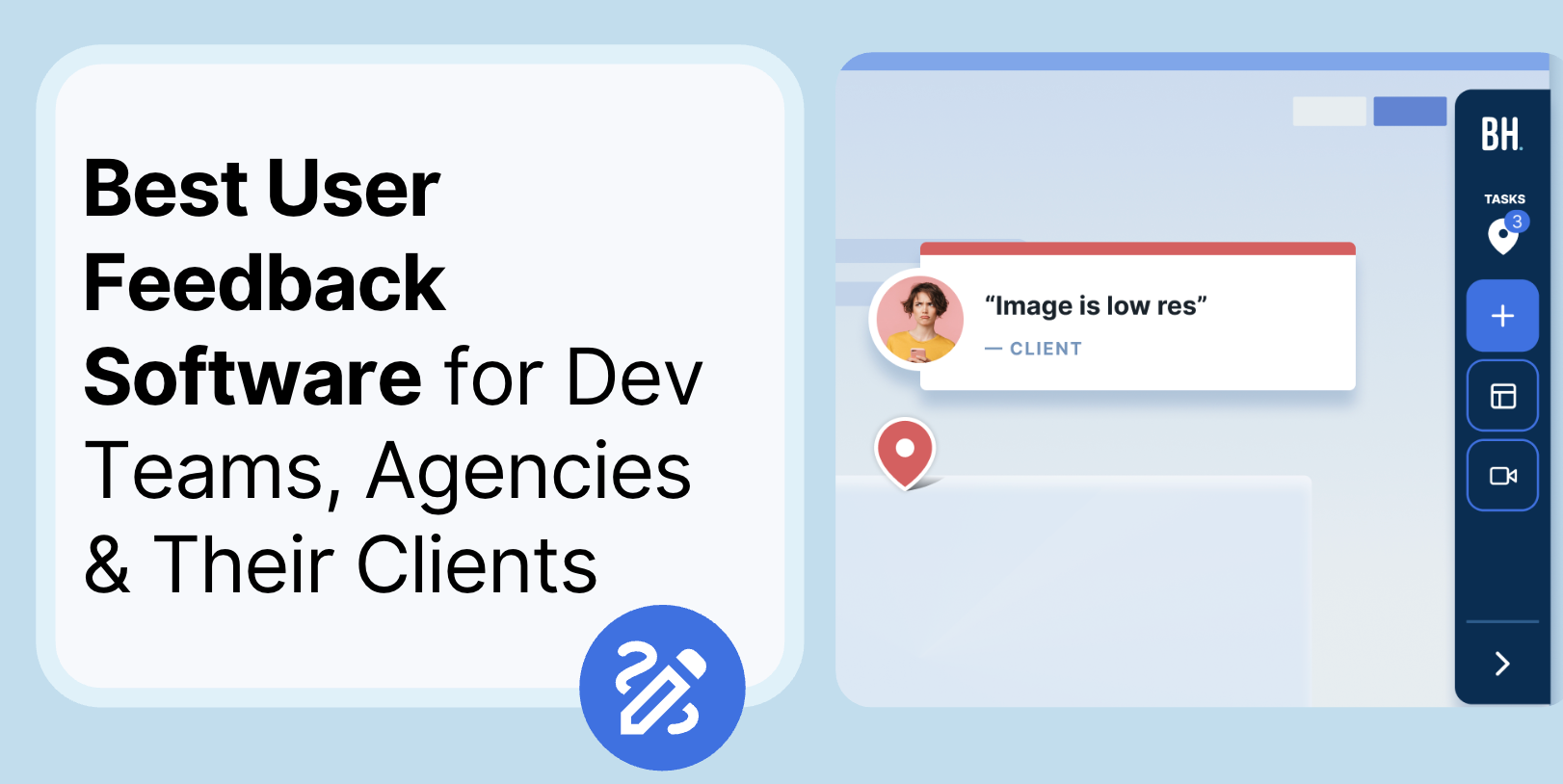

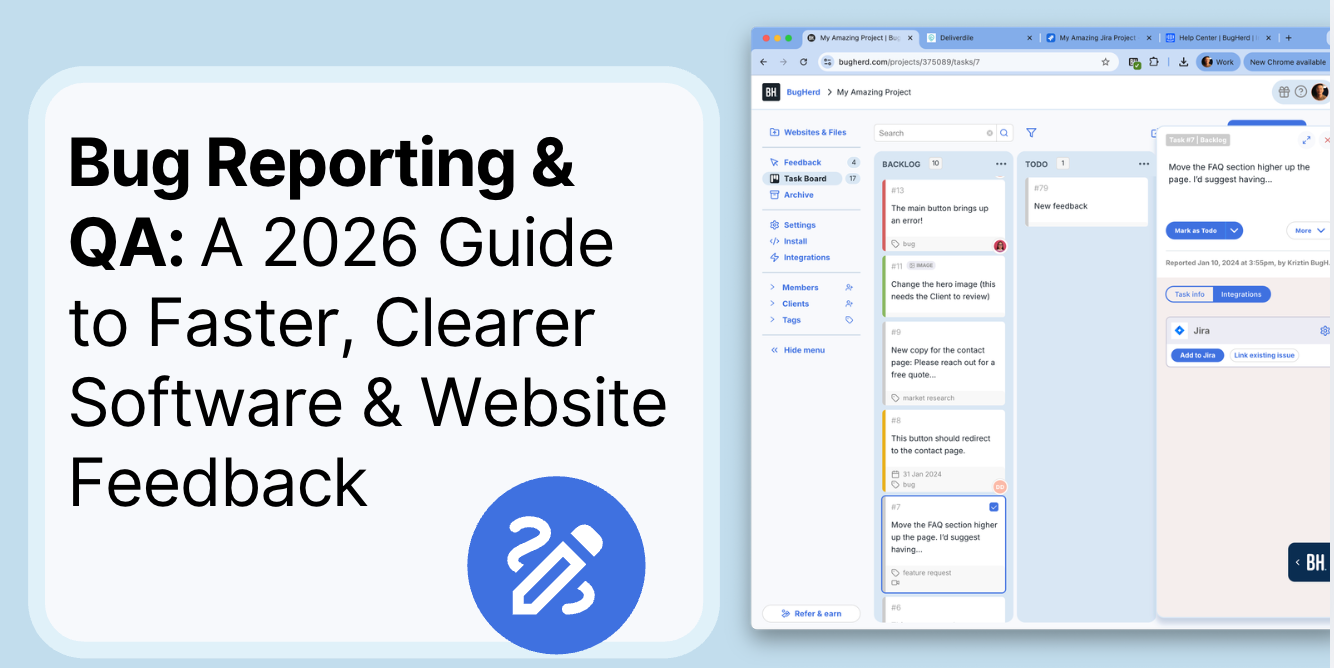

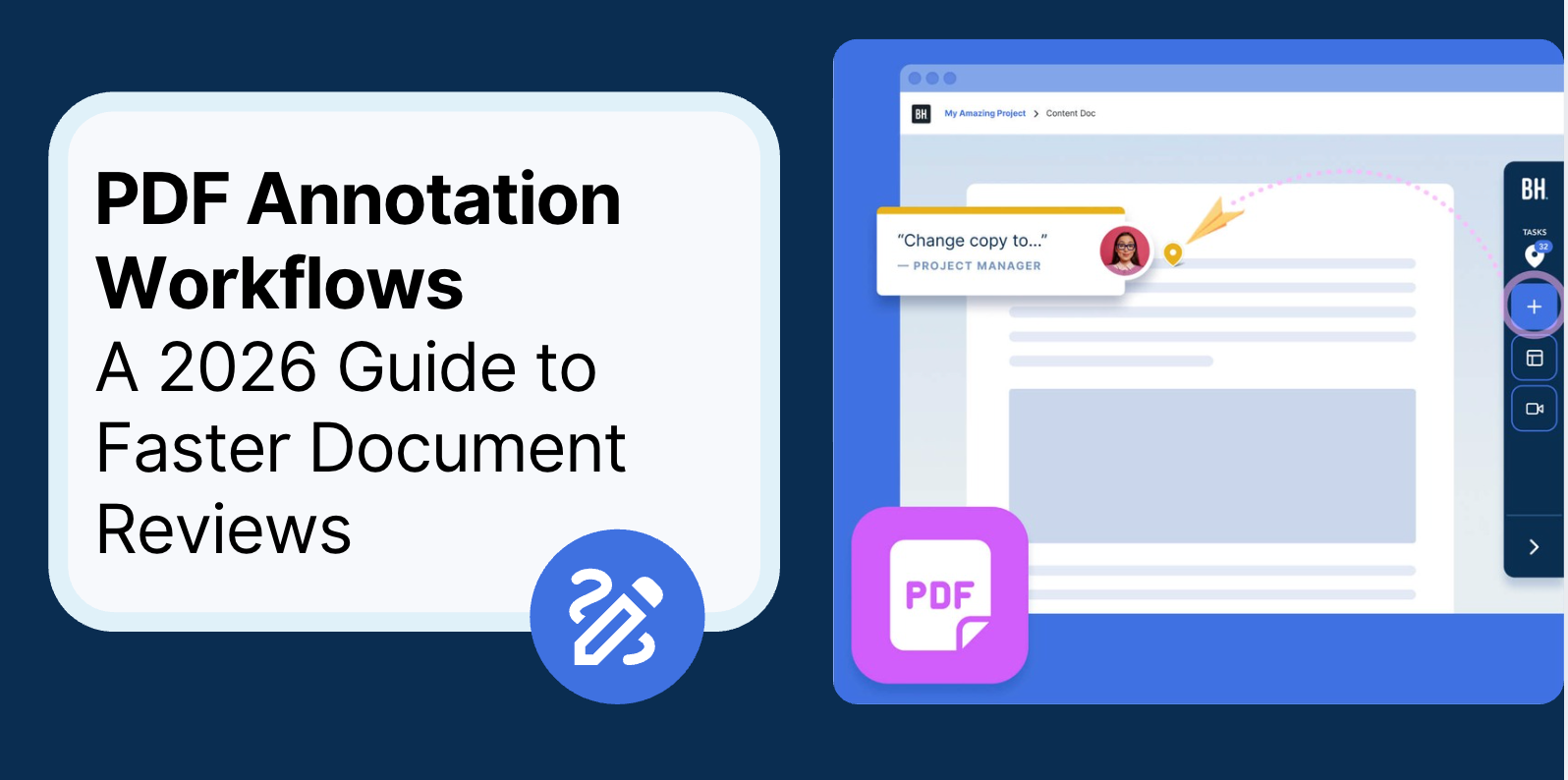
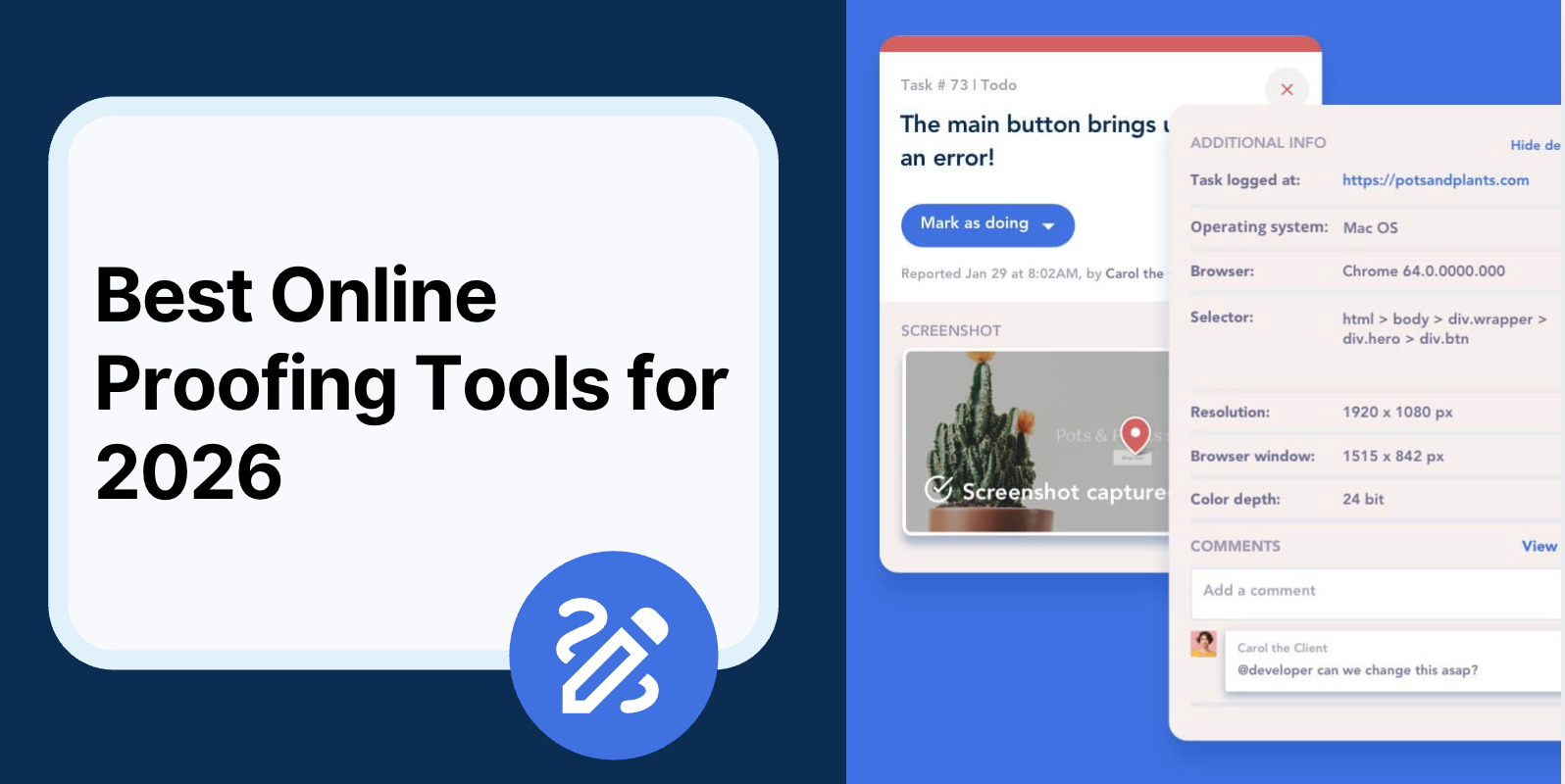
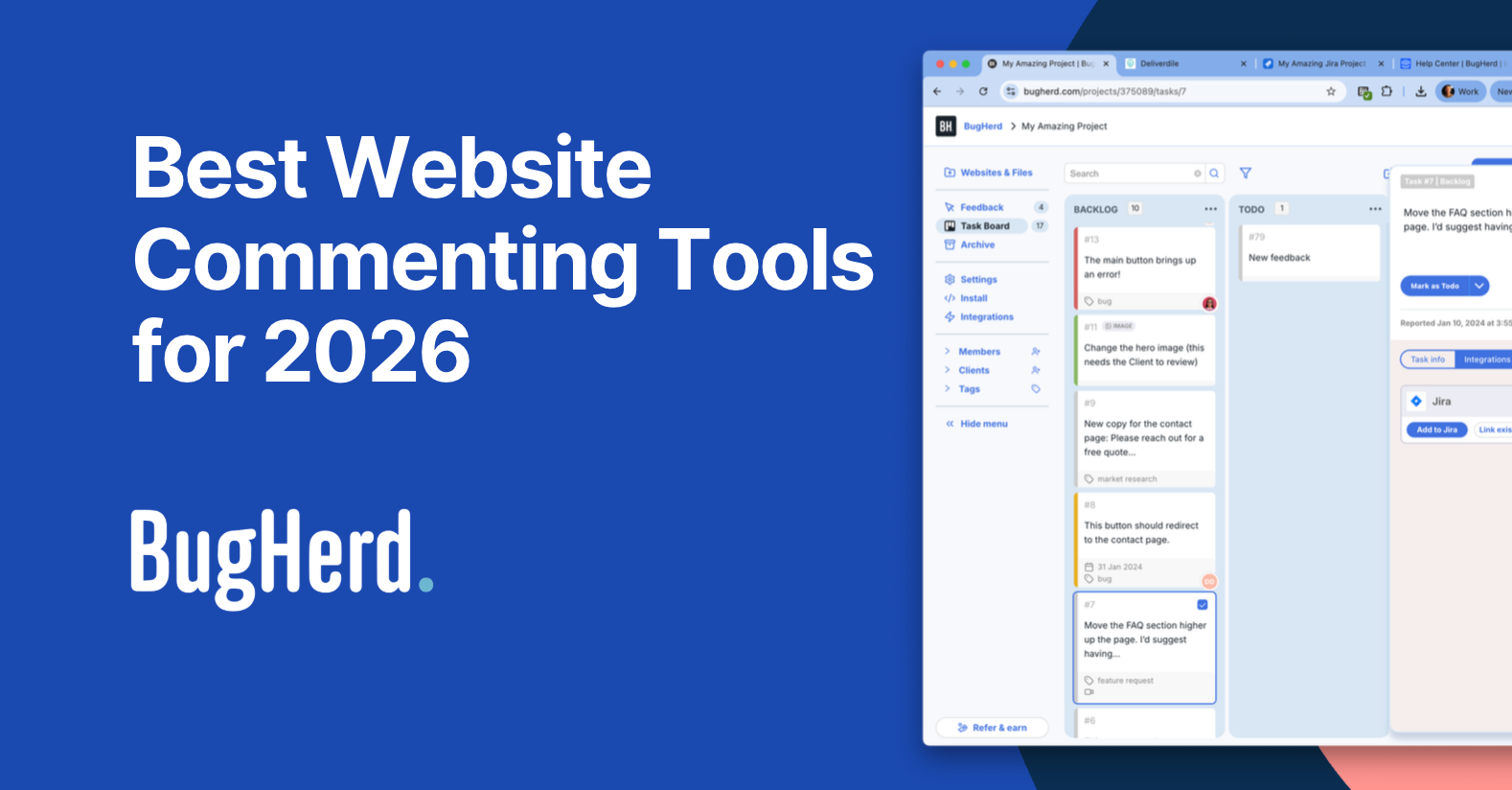




But don't just take our word for it.
BugHerd is loved by 10,000+ companies,
350,000+ users across 172 countries.
4.8/5
4.7/5
4.5/5
5/5
8.7/10
Sam Duncan 📱📏 🌱
@SamWPaquet
"@bugherd where have you been all my life??
We just migrated our bug tracking over from Asana and have at least halved our software testing time🪳👏📈. "
Ashley Groenveld
Project Manager
“I use BugHerd all day every day. It has sped up our implementation tenfold.”
Sasha Shevelev
Webcoda Co-founder
"Before Bugherd, clients would try to send screenshots with scribbles we couldn't decipher or dozens of emails with issues we were often unable to recreate."
Mark B
Developer
“A no-brainer purchase for any agency or development team.”
Kate L
Director of Operations
"Vital tool for our digital marketing agency.”
Paul Tegall
Delivery Manager
"Loving BugHerd! It's making collecting feedback from non-tech users so much easier."
Daniel Billingham
Senior Product Designer
“The ideal feedback and collaboration tool that supports the needs of clients, designers, project managers, and developers.”
Chris S
CEO & Creative Director
“Our clients LOVE it”
Emily VonSydow
Web Development Director
“BugHerd probably saves us
at least 3-4hrs per week.”